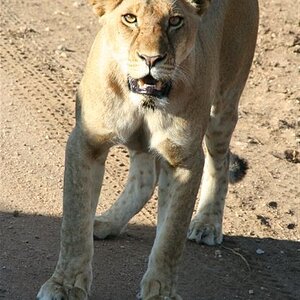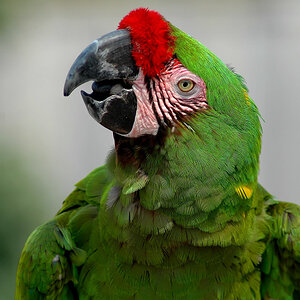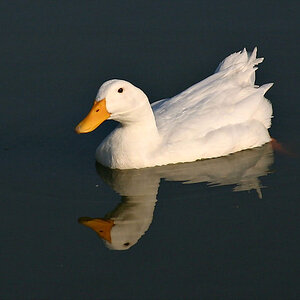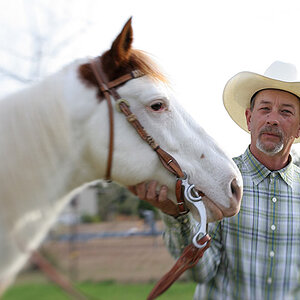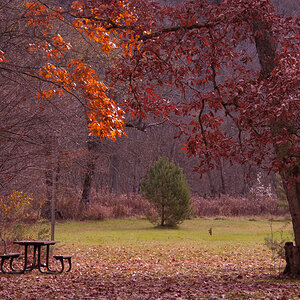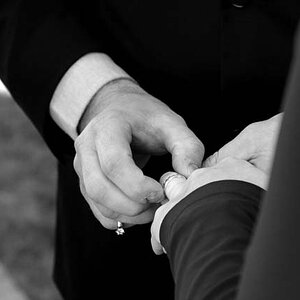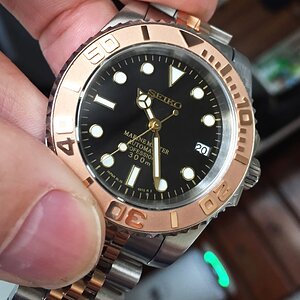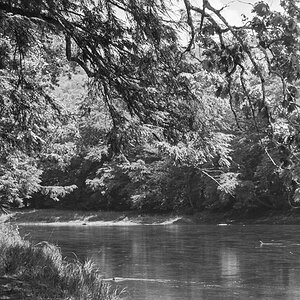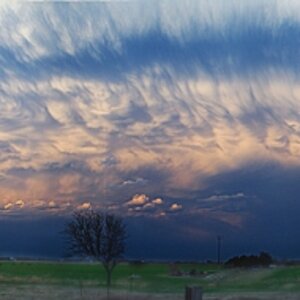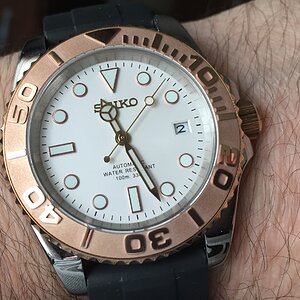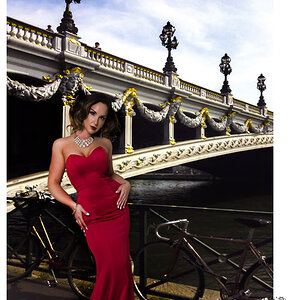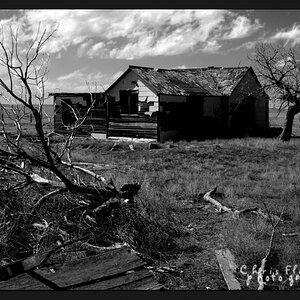Navigation
Install the app
How to install the app on iOS
Follow along with the video below to see how to install our site as a web app on your home screen.

Note: This feature currently requires accessing the site using the built-in Safari browser.
More options
You are using an out of date browser. It may not display this or other websites correctly.
You should upgrade or use an alternative browser.
You should upgrade or use an alternative browser.
Can you overclock your camera?
- Thread starter BLD_007
- Start date
BLD_007
TPF Noob!
- Joined
- Jul 27, 2009
- Messages
- 330
- Reaction score
- 0
- Can others edit my Photos
- Photos OK to edit
To what end? Is there an application you want to run faster on your camera?
Faster shutter speed would be the main thing. With the faster shutter the sensor will need more gas as well.
Right?
LBPhotog
TPF Noob!
- Joined
- Mar 3, 2010
- Messages
- 372
- Reaction score
- 0
- Location
- New Hampshire
- Can others edit my Photos
- Photos NOT OK to edit
ummm, just wondering here ... has anyone ever used over 1/4000 of a second for an exposure? If so, we're you outside of a controlled studio and were you shooting anything other than a bullet?
Honestly man, there are very few situations that require more than, lets say, 1/1000 of a second shutter speed ... if you get that high than light becomes the issue and not the camera (most can do 1/4000 and some even higher) ...
As for "OVERCLOCKING" the sensor, you will only increase the amount of "Noise" and would probably render the image virtually useless ...
What are you shooting that you feel the need to do this?
Honestly man, there are very few situations that require more than, lets say, 1/1000 of a second shutter speed ... if you get that high than light becomes the issue and not the camera (most can do 1/4000 and some even higher) ...
As for "OVERCLOCKING" the sensor, you will only increase the amount of "Noise" and would probably render the image virtually useless ...
What are you shooting that you feel the need to do this?
inTempus
TPF Noob!
- Joined
- Dec 15, 2008
- Messages
- 3,692
- Reaction score
- 4
- Location
- Indiana
- Can others edit my Photos
- Photos OK to edit
1/8000 isn't fast enough? How fast do you think you need your shutter to be?To what end? Is there an application you want to run faster on your camera?
Faster shutter speed would be the main thing. With the faster shutter the sensor will need more gas as well.
Right?
TJ K
No longer a newbie, moving up!
- Joined
- Sep 9, 2008
- Messages
- 2,093
- Reaction score
- 1
- Location
- Sunny South Florida
- Can others edit my Photos
- Photos NOT OK to edit
1/8000 isn't fast enough? How fast do you think you need your shutter to be?To what end? Is there an application you want to run faster on your camera?
Faster shutter speed would be the main thing. With the faster shutter the sensor will need more gas as well.
Right?
Well he's obviously visiting the sun so he's going to need f/100 at 1/100000 to get anywhere near correct.

Really though 1/4000-1/8000 isn't enough? I mean have you even gotten out there and had actual results that showed that it didn't work??
BLD_007
TPF Noob!
- Joined
- Jul 27, 2009
- Messages
- 330
- Reaction score
- 0
- Can others edit my Photos
- Photos OK to edit
I guess what I meant FPS. Like 10+ frames a second. I'm only at like 5.6 with my 50d.ummm, just wondering here ... has anyone ever used over 1/4000 of a second for an exposure? If so, we're you outside of a controlled studio and were you shooting anything other than a bullet?
Honestly man, there are very few situations that require more than, lets say, 1/1000 of a second shutter speed ... if you get that high than light becomes the issue and not the camera (most can do 1/4000 and some even higher) ...
As for "OVERCLOCKING" the sensor, you will only increase the amount of "Noise" and would probably render the image virtually useless ...
What are you shooting that you feel the need to do this?
rufus5150
TPF Noob!
- Joined
- Mar 8, 2008
- Messages
- 1,658
- Reaction score
- 2
- Location
- Austin, Texas
- Website
- www.toddmckimmey.com
- Can others edit my Photos
- Photos NOT OK to edit
has anyone ever used over 1/4000 of a second for an exposure? If so, we're you outside of a controlled studio and were you shooting anything other than a bullet?
Broad daylight and f1.4
inTempus
TPF Noob!
- Joined
- Dec 15, 2008
- Messages
- 3,692
- Reaction score
- 4
- Location
- Indiana
- Can others edit my Photos
- Photos OK to edit
No. The shutter on the 50D couldn't handle it. It would take more than simple "over clocking" (whatever that may be in terms of camera equipment) and would require completely redesigning the existing system.I guess what I meant FPS. Like 10+ frames a second. I'm only at like 5.6 with my 50d.ummm, just wondering here ... has anyone ever used over 1/4000 of a second for an exposure? If so, we're you outside of a controlled studio and were you shooting anything other than a bullet?
Honestly man, there are very few situations that require more than, lets say, 1/1000 of a second shutter speed ... if you get that high than light becomes the issue and not the camera (most can do 1/4000 and some even higher) ...
As for "OVERCLOCKING" the sensor, you will only increase the amount of "Noise" and would probably render the image virtually useless ...
What are you shooting that you feel the need to do this?
LBPhotog
TPF Noob!
- Joined
- Mar 3, 2010
- Messages
- 372
- Reaction score
- 0
- Location
- New Hampshire
- Can others edit my Photos
- Photos NOT OK to edit
Broad daylight and f1.4has anyone ever used over 1/4000 of a second for an exposure? If so, we're you outside of a controlled studio and were you shooting anything other than a bullet?
Must be that TEXAS sun you've got down there ....
 ....
.... Wait a second ... *grabbing my trusty Nikon flashlight pen and scribbling furiously* ... you're a bit off in your calculation .... it's f/1.8 at 1/4000 ... I guess you could use 1/8000 at f/1.4 though .... :thumbup::lmao:
- Joined
- May 1, 2008
- Messages
- 25,422
- Reaction score
- 5,001
- Location
- UK - England
- Website
- www.deviantart.com
- Can others edit my Photos
- Photos OK to edit
Overclocking the camera - I would guess this would be pushing the processor faster so as to process RAW and JPEG images a lot quicker - would not work well. As cited the frames per second is limited by the mechanical nature of the camera shutter itself. However as well as that you have the write speed to the cameras memory card (limted by the cards speed and the cameras native writing speed) so even if you could speed up the processing side the buffer of the camera would not get much bigger.
Suffice to say that overclocking is not really a high possibilty.
However flash dominant photography of subjects like insects, birds bullets and waterdrops can benefit from a faster shutter - the best method for that is an external shutter that is faster. You then set the camera to bulb mode and use the external shutter (no light gets into the camera whilst the shutter is open so only when the exteral shutter triggors does the sensor get exposed to light. You could also use slower 1, 2 or several second exposures for a similar effect if you could control your subject.
StopShot - Our Vision
has some more info on the uses and devices for highspeed photography.
Suffice to say that overclocking is not really a high possibilty.
However flash dominant photography of subjects like insects, birds bullets and waterdrops can benefit from a faster shutter - the best method for that is an external shutter that is faster. You then set the camera to bulb mode and use the external shutter (no light gets into the camera whilst the shutter is open so only when the exteral shutter triggors does the sensor get exposed to light. You could also use slower 1, 2 or several second exposures for a similar effect if you could control your subject.
StopShot - Our Vision
has some more info on the uses and devices for highspeed photography.
- Joined
- Dec 16, 2003
- Messages
- 33,896
- Reaction score
- 1,853
- Location
- Edmonton
- Website
- www.mikehodson.ca
- Can others edit my Photos
- Photos NOT OK to edit
The shutter speed is an aspect of exposure, faster isn't necessarily better. As mentioned, on these cameras it's an physical curtain, not a computer program.
The shooting rate (FPS) is a matter of how fast the shutter (and possibly the mirror) can reset and fire repeatedly. Again, this is a physics issue, not really computer/processor related.
Although, there are some Nikon DSLR cameras that can shoot faster when they have the battery grip installed. Maybe this is a throwback to the old days when you could get a 'power booster' on your camera, allowing the film to wind automatically or faster than normal.
The shooting rate (FPS) is a matter of how fast the shutter (and possibly the mirror) can reset and fire repeatedly. Again, this is a physics issue, not really computer/processor related.
Although, there are some Nikon DSLR cameras that can shoot faster when they have the battery grip installed. Maybe this is a throwback to the old days when you could get a 'power booster' on your camera, allowing the film to wind automatically or faster than normal.
gsgary
Been spending a lot of time on here!
- Joined
- Oct 31, 2008
- Messages
- 16,143
- Reaction score
- 3,002
- Location
- Chesterfield UK
- Website
- www.gsgary.smugmug.com
- Can others edit my Photos
- Photos OK to edit
I guess what I meant FPS. Like 10+ frames a second. I'm only at like 5.6 with my 50d.ummm, just wondering here ... has anyone ever used over 1/4000 of a second for an exposure? If so, we're you outside of a controlled studio and were you shooting anything other than a bullet?
Honestly man, there are very few situations that require more than, lets say, 1/1000 of a second shutter speed ... if you get that high than light becomes the issue and not the camera (most can do 1/4000 and some even higher) ...
As for "OVERCLOCKING" the sensor, you will only increase the amount of "Noise" and would probably render the image virtually useless ...
What are you shooting that you feel the need to do this?
I have said this many times " FPS does not matter timing is more important because you only need one frame to get the shots"
BLD_007
TPF Noob!
- Joined
- Jul 27, 2009
- Messages
- 330
- Reaction score
- 0
- Can others edit my Photos
- Photos OK to edit
I guess what I meant FPS. Like 10+ frames a second. I'm only at like 5.6 with my 50d.ummm, just wondering here ... has anyone ever used over 1/4000 of a second for an exposure? If so, we're you outside of a controlled studio and were you shooting anything other than a bullet?
Honestly man, there are very few situations that require more than, lets say, 1/1000 of a second shutter speed ... if you get that high than light becomes the issue and not the camera (most can do 1/4000 and some even higher) ...
As for "OVERCLOCKING" the sensor, you will only increase the amount of "Noise" and would probably render the image virtually useless ...
What are you shooting that you feel the need to do this?
I have said this many times " FPS does not matter timing is more important because you only need one frame to get the shots"
but in sports, you need that 10fps to get that right fram.
Similar threads
- Replies
- 2
- Views
- 433
- Replies
- 3
- Views
- 133
- Replies
- 0
- Views
- 87
- Replies
- 0
- Views
- 46

